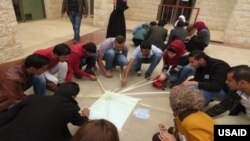In a number of developing countries, democracy is in decline. That’s because a democratic political culture requires a vibrant civil-society sector and an independent media to keep the citizens well informed about the actions and performance of government institutions and officials. Only then do citizens have the means to freely influence public policies.
But a free flow of information is anathema to autocrats and would-be dictators.So, despite all the technical developments since the turn of the century which should improve access to information and social participation--including internet access, greater mobile phone ownership and easy-to-use digital media platforms--the flow of information is being choked off.
In recent years, dozens of governments have passed restrictive laws and regulations that diminish the ability of civil society organizations to register, operate freely, or receive foreign funding. At the same time, print, on-air and digital news outlets and those who report and publish the news are restricted, shut down and silenced while journalists are harassed, attacked, detained, and even murdered.
Indeed, according to Freedom House, just 13 percent of the world’s population enjoys a free press -- a media environment where coverage of political news is robust, the safety of journalists is guaranteed, state intrusion in media affairs is minimal, and the press is not subject to onerous legal or economic pressures. At the same time, around 67 percent of all Internet users live in countries where criticism of the government, military, or ruling family are subject to censorship.
For that reason, the U.S. Agency for International Development, or USAID, is helping to strengthen the legal environment for civil society in over 20 countries; works with local organizations globally to combat growing repression, expand civic space, and strengthen civil society; supports worker organizations to advance worker rights and access to justice in 27 countries; and helps provide civil society, independent media organizations, bloggers, and advocates with mentoring, tools, and techniques to bolster their information technology capacity and protect their security online.
The stakes are high. In some countries, civil society and the media are the only institutions that keeps power in check. Through USAID’s many programs, the U.S. Government works to keep them running.














